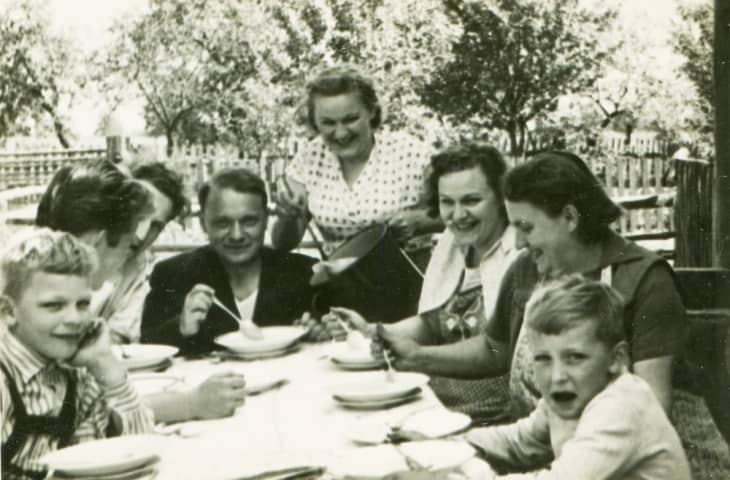Why Do People in the South Call Lunch ‘Dinner’ and Dinner ‘Supper’?

I grew up in the South, and that means I had a grandma who was an excellent cook, but it also means that, throughout my childhood, I was exceedingly confused about what the word ‘dinner’ meant. Most people I knew used dinner to refer to the evening meal and lunch for the mid-day one, but at grandma’s dinner happened at noon and there was another meal, supper, in the evening. Were my relatives trying to confuse me? What, exactly, did it all mean?
I’m ashamed to admit that, despite my fascination with linguistic minutiae, until very recently I had just chalked this up as one of those South vs. North things, and not really considered its etymology at all. But while researching another Apartment Therapy article about how many meals we eat each day, and why, I came across a few things that cleared up the mystery once and for all.
Wikipedia explains that while most Americans use ‘dinner’ and ‘supper’ interchangeably, the two words can also make a distinction between a light, informal late-evening meal eaten with family (supper), and a grander affair (dinner). Like a dinner party — imagine inviting friends over for a ‘supper party’. Sounds strange, doesn’t it?
Dictionary.com further explains that ‘dinner’ doesn’t necessarily imply a particular time, but rather refers to the main meal of the day, whenever it occurs. And on NPR, food historian Helen Zoe Veit points out that in the past, especially in farming communities, the noon meal was the biggest one of the day. Which would explain why, in certain parts of the south, the word ‘dinner’ has persisted as a reference to the noon, rather than evening, meal. It also helps explain why ‘supper’ has become a distinctly southern word.
Here you can check out the results of Harvard’s dialect survey, which shows the prevalence in different parts of the country of different attitudes towards the dinner vs. supper distinction (or lack thereof). What about you — do these words have different meanings to you? Or are they one and the same?
Re-edited from a post originally published 10.20.15-TW